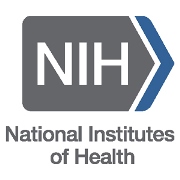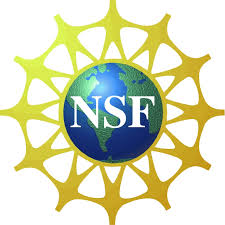The federal government and scientific community have ramped up efforts to combat the Coronavirus Disease (SARS-CoV-2). There are multiple funding opportunities for small businesses that have technology that could aid in this effort. The available opportunities are constantly changing so we encourage you to continue to monitor agency websites for new notices. Below is a summary of some funding opportunities.
 National Institutes of Health (NIH)
National Institutes of Health (NIH)
Urgent and Emergency competing revisions and administrative supplements to existing grant awards
In order to move quickly to fund research related to Covid-19, NIH has released notices for Urgent and Emergency competing revisions and administrative supplements to existing grant awards. Companies that have active grants are eligible to apply to these administrative supplements. This type of funding mechanism moves quickly because the scientific review is conducted internally by NIH experts instead of the traditional peer review process. This allows NIH to move quickly (3 months or less) in awarding funds for Covid-19 research.
These opportunities are explained in their Notice of Special Interest (NOSI) announcements. Each Institute that is offering this funding has their own NOSI. It is important that you review these notices for your institute that awarded the original grant for special instructions, scope, and deadlines. A list of these notices can be found on the NIH website: NIH Coronavirus research funding
Applications in response to this NOSI must be submitted using the following targeted funding opportunities or subsequent re-issued equivalents:
- PA-18-935 Urgent Competitive Revision to Existing NIH Grants and Cooperative Agreements (Urgent Supplement – Clinical Trial Optional) is intended to provide funds for NIH grantees applying to expand the scope of their active grant.
- PA-18-591 Administrative Supplements to Existing NIH Grants and Cooperative Agreements (Parent Admin Supp Clinical Trial Optional) is intended to provide funds for NIH grantees where the work proposed in the supplement is fully within the scope of the ongoing grant.
To be eligible to apply to these solicitations your existing grant must be have the original project period still active. If your grant is in a no cost extension (NCE) then you are not eligible to apply.
If you are eligible and have technology that is applicable you will need to determine whether the additional research you propose is within the scope of you current grant or outside the scope. This will dictate which FOA to use when submitting your proposal. Submissions to both solicitations will be viewed equally, there is no advantage of on over the other. The NOSI and FOA for these supplements have special criteria and instructions that must be followed.
NIH Rapid Acceleration of Diagnostics (RADx)
The National Institute of Biomedical Imaging and Bioengineering (NIBIB) is soliciting proposals that can provide funding up to $500 million across multiple projects. This is a fast-track technology development program that leverages the National Institutes of Health (NIH) Point-of-Care Technology Research Network (POCTRN). The application process is broken up in 3 phases (Phase 0, 1, and 2). The phase 0 submission will be reviewed in 1 week to determine if the project should proceed to the phase 1 submission process. The institute is providing commercialization experts for the phase 0 process and can provide many resources other than just funding for the next two phases (expert technical, clinical, manufacturing, and regulatory advisors). The goal is to accelerate the development, validation, and commercialization of innovative point-of-care and home-based tests, as well as improvements to clinical laboratory tests. Unlike the typical SBIR programs this mechanism will assist not only in product development but also commercialization and distribution.
Covid-19 Portfolio Tool
To assist the scientific community in Covid-19 research efforts The NIH has created a portfolio tool that is a current database of literature regarding SARS-CoV02. This could be a useful tool for insight on the virus as you develop your research proposal for these funding opportunities: Covid-19 Portfolio Tool.
Another additional resource is the CORD-19 Open Research Dataset that is a comprehensive machine readable scholarly coronavirus literature with artificial intelligence tools: CORD-19

National Science Foundation (NSF)
In an effort to fund Covid-19 research quickly, NSF is encouraging small businesses that have technology applicable to Covid-19 that include but are not limited to: artificial intelligence, digital health, diagnostics, distributed ledger, environmental technologies, medical devices, pharmaceutical technologies, disinfection and sterilization, and filtration and separations. The first step is to submit a required Project Pitch. When submitting a Project Pitch:
- Select “COVID-19” as the SBIR/STTR topic area on the Project Pitch form
- Reference the word “COVID-19” and this Dear Colleague Letter (NSF 20-065) in the “Describe the Technology/Innovation” field.
Companies that receive an invitation to submit a proposal (based on an invited COVID-19 Project Pitch) should then submit their NSF SBIR/STTR Phase I proposals through Fastlane. Follow the NSF SBIR and STTR Phase I solicitation guidelines with the following additional guidance:
- The term “COVID-19” must be in the proposal title.
- Small businesses are encouraged to facilitate an expedited submission and review by submitting a nine-page project description (closer to the nine-page solicitation minimum – the maximum is fifteen pages).
You should refer to the specific instructions: NSF SBIR/STTR proposal instructions
Shannon Bass is a BBCetc Principal Consultant
Contact BBC to discuss how we can assist in preparing and submitting these NIH and NSF applications.

